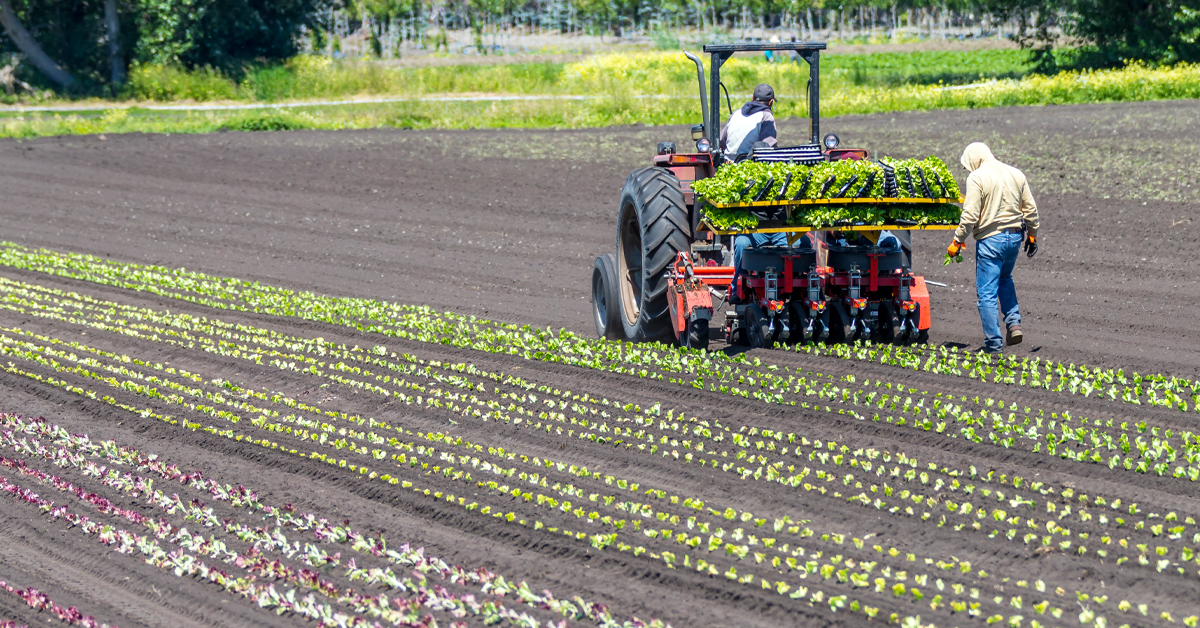Investing in real estate has always been a popular choice for those looking to diversify their portfolios and generate steady income. However, traditional real estate investment trusts (REITs) may not always offer the same opportunities for growth and stability as other sectors. This is where agricultural REITs come into play.
Understanding Agricultural REITs
Agricultural Real Estate Investment Trusts (REITs) are specialized companies that own or finance income-generating agricultural properties, primarily farmland. Unlike traditional REITs, which focus on commercial or residential properties, agricultural REITs specialize in investing in agricultural assets.
This allows investors to tap into the unique characteristics and benefits of the agriculture industry.
One advantage of agricultural REITs is their ability to provide diversification within an investment portfolio. By including farmland assets, these REITs offer exposure to a different market segment and can contribute to long-term stability and growth.
Additionally, agricultural REITs generate income through leasing land to farmers or selling crops produced on their lands. This income potential adds further appeal for investors.
Farmland values historically have shown stable growth patterns due to consistent demand for food production and limited supply of arable land. This lower volatility makes agricultural REITs attractive during economic downturns.
Furthermore, agricultural REITs often prioritize sustainable farming practices, aligning with environmentally friendly initiatives. This can attract socially conscious investors seeking ethically responsible investments.
In summary, agricultural REITs allow investors to participate in the agriculture sector without owning or managing the land directly. With their focus on farmland assets, these specialized REITs offer diversification, income generation potential, stability, and alignment with sustainable practices.
Exploring the Growing Interest in Agriculture Investments
Investor preferences have shifted towards sustainable and socially responsible investments in recent years. This trend has fueled a growing interest in agriculture investments, which align with these preferences by supporting environmentally friendly farming practices and local communities.
Investing in agriculture offers benefits such as potential long-term capital appreciation, stable income streams from lease agreements, and diversification opportunities through different crop types.
Agricultural Real Estate Investment Trusts (REITs) have gained traction as a way for investors to participate in the agricultural sector without directly owning or managing farmland.
With increasing demand for sustainable investments, agriculture presents an attractive opportunity for individuals looking to make a positive impact while potentially reaping financial rewards.
Stable Income Streams from Farmland Leases
Investor preferences have shifted towards stable income sources, driving interest in farmland leases. These long-term agreements between farmers and landowners provide reliable rental income for agricultural REITs and individual investors.
The steady demand for food production ensures a consistent stream of rental payments, while the structure of these leases fosters trust and reduces financial uncertainties. Investing in farmland leases also offers diversification benefits, protecting against market volatility.
Overall, farmland leases present a secure and profitable investment opportunity in the real estate market.
Diversification Opportunities with Different Crop Types
The agricultural sector in the United States offers a wide range of crops, including grains, fruits, vegetables, and livestock. Agricultural REITs can take advantage of this diversity to mitigate risks associated with specific crop performance and protect investor returns.
By investing in different types of crops, agricultural REITs can reduce their exposure to fluctuations in commodity prices and market volatility. This diversification strategy helps hedge against unpredictable factors and ensures a more stable income stream.
Diversifying holdings across various crop types allows agricultural REITs to spread risk. If one crop faces challenges, other crops within the portfolio can offset potential losses, maintaining stability.
Additionally, cultivating different crop types promotes sustainability by preventing soil depletion, supporting biodiversity, and adapting to changing consumer demands.
In summary, leveraging the diverse range of crops available in the US agriculture sector offers significant benefits for agricultural REITs. Diversifying holdings across different crop types helps mitigate risks and supports sustainable farming practices while safeguarding investor returns.
Promoting Sustainable Farming Practices
Agricultural REITs prioritize environmental conservation by promoting sustainable farming practices. They reduce chemical usage, preserve soil health, and implement responsible water management techniques.
By minimizing the use of harmful chemicals like pesticides and herbicides, agricultural REITs contribute to cleaner ecosystems and healthier soil for future generations. This approach ensures the production of safer and more nutritious crops while preserving biodiversity.
In addition, these organizations implement soil health preservation techniques such as cover cropping, crop rotation, and composting. This enhances soil fertility, structure, and water-holding capacity while reducing erosion and nutrient runoff.
Recognizing the growing concern of water scarcity, agricultural REITs promote efficient irrigation systems and responsible water management practices. Precision irrigation technology and innovative solutions like rainwater harvesting help minimize water wastage while maximizing crop productivity.
Through these efforts, agricultural REITs contribute to sustainable farming practices by prioritizing environmental conservation through reduced chemical usage, soil health preservation techniques, and responsible water management strategies.
Supporting Local Communities and Rural Economies
Investing in agriculture has a positive impact on local communities and rural economies. It creates jobs in rural areas, supporting local economies heavily reliant on farming activities.
Agricultural REITs can invest in infrastructure that strengthens regional food systems, reducing dependence on imports and ensuring access to fresh, locally grown produce. These investments also support farmers by improving productivity and competitiveness.
Additionally, agricultural REITs engage with local communities through education programs and sustainable farming initiatives, fostering stronger relationships and empowering residents for a brighter future.
Market Volatility and Weather Conditions
Market volatility and weather conditions can significantly impact agricultural real estate investment trusts (REITs). Fluctuations in commodity prices directly affect profitability, potentially influencing investor returns.
Extreme weather events, like droughts or floods, pose significant risks to agricultural productivity and can result in financial losses for REITs. Analyzing historical data on market volatility and weather patterns can provide valuable insights into the performance of agricultural REITs.
Investors must consider these factors before making investment decisions in this sector.
Regulatory Environment
Agricultural REITs face challenges in navigating complex land-use regulations and zoning restrictions. These regulations can limit their ability to acquire or develop farmland.
Changes in government subsidies and policies also impact the financial performance of agricultural REITs, making it crucial for investors to stay informed about potential changes that could affect their investments. Understanding and adapting to the regulatory environment is essential for evaluating agricultural REITs as investment opportunities.
[lyte id=’tlXFnShBbXw’]







_CNE-v1-p58-H.jpg)